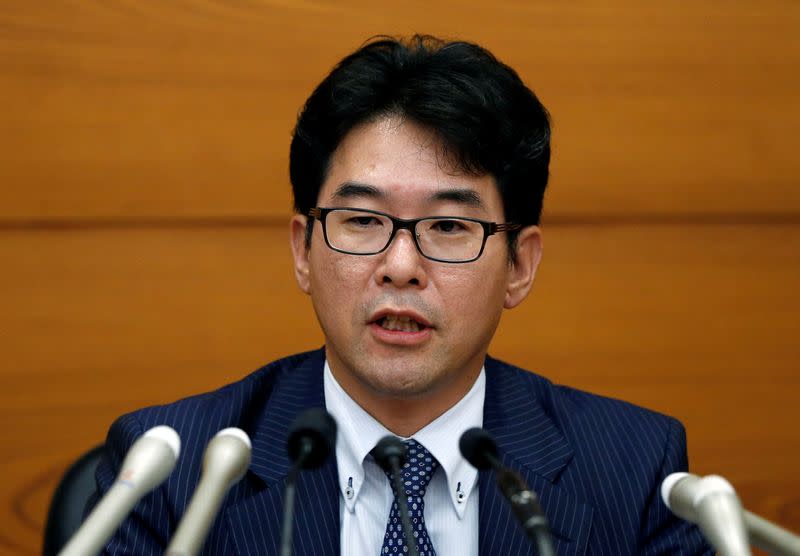Reaching 2% inflation goal necessary for BOJ easy policy exit, says ex-board member Kataoka

By Divya Chowdhury
MUMBAI (Reuters) -The Bank of Japan (BOJ) will be able to gradually shift away from its easy monetary policy only after ensuring its 2% inflation goal has been sustainably achieved, former board member Goushi Kataoka said on Monday.
Kataoka expected the Spring 2024 wage negotiations to be key for the BOJ's inflation mission, Kataoka, currently chief economist at PwC Japan, told the Reuters Global Markets Forum.
"Next year's wage negotiations will require nominal wages to rise at least as much as this year's to confirm a virtuous cycle of income, spending and prices," he said, adding an exit from easy policy won't be possible "until after next year."
Once it begins exiting policy, Kataoka expects the BOJ to first remove the peg on the 10-year Japanese government bond (JGB) yield, then exit its negative interest rate policy, and finally scrap the YCC policy.
Kataoka described the central bank's move in July to allow long-term rates to rise more as a "bad decision," saying there were no particular distortions observed in the bond market, unlike in December 2022, when the BOJ made a surprise tweak to its bond yield control under then governor Haruhiko Kuroda.
"Allowing the guide rate to effectively go as low as 1% would not be possible until the 2% (inflation) target is achieved," Kataoka said.
The BOJ said the July action was aimed at making its yield curve control (YCC) more sustainable, but markets saw the move as another step towards the central bank dialling back its massive stimulus programme.
Kataoka said a recovery in Japanese production and domestic consumption was still only gradual, and that the government had not been very active in increasing the public's disposable income.
"I'm worried about the stance of Kishida cabinet," he said, describing the previous administrations' tax hikes in 2014 and 2019 as undermining the Kuroda's bold monetary policy experiment.
To achieve the 2% inflation target, "it is necessary for the Japanese government and central bank to cooperate with each other in terms of monetary and fiscal policies," he said.
Kataoka said the attractiveness of the Japanese economy to foreign investors stems from the devaluation of the yen.
"The key word that characterises the Japanese economy this year, is ... 'first in 30 years'," he said, as it finally re-emerges from long-term stagnation.
(Join GMF, a chat room hosted on Refinitiv Messenger, for live interviews: )
(Reporting by Divya Chowdhury and Savio Shetty in Mumbai, and Anisha Sircar in Bengaluru; Editing by Christina Fincher)

 Yahoo Finance
Yahoo Finance 